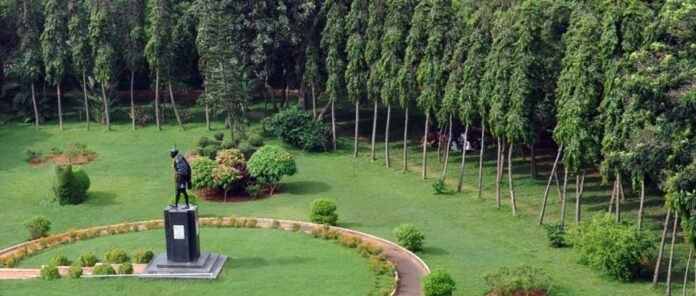Research led by Dr Subhash Chandra from GITAM (Deemed to be University) uses green tech to create sustainable carbon electrodes from biomass waste to desalinate brackish water
Visakhapatnam, April 2023: A quarter of the world’s population doesn’t have access to safe drinking water, and nearly half lack sources for sanitation. This gap in access to water is further expected to grow by 40% in the next seven years, as per a study by Morgan Stanley, bringing a new urgency to address water scarcity and sustainable water management.
ALSO READ: Sleep Apnea and Its Types
In this context, the Department of Science and Technology (DST), Ministry of Science and Technology, GoI, has sanctioned a research project on the desalination of brackish water for industrial uses, to Dr. Subhash Chandra from GITAM (Deemed to be University). Under the research project, Dr. Chandra received a grant of INR 48.61 lakh as part of the Water Technology Initiative plan in March 2023.
The growing water scarcity is a humanitarian crisis, but it also has striking economic implications. By 2050, water scarcity in some regions could impact GDP growth by up to 11.5%, the World Bank estimates. In this prevailing grim scenario, brackish water rejuvenation offers much hope! Brackish water — i.e. water that is more saline than freshwater but less saline than seawater — is commonly found in coastal areas, estuaries, and aquifers, and its desalination is crucial in addressing the water scarcity in many arid regions. Over the next several years, it’s anticipated that the desalination systems market in India will grow at a rate of more than 3% annually.
The project aims to develop sustainable carbon electrodes from biomass waste for use in membrane capacitive deionization (MCDI) technology, which has become an up-and-coming water treatment technology for seawater desalination and is a greener alternative with low energy consumption, high efficiency, easy electrode regeneration, and no secondary pollution. MCDI technology is expected to have high desalination efficiency and salt rejection rates, making it a practical and low-cost technique for brackish water desalination.
 Online Courses with Certification
Online Courses with Certification
As part of the project, Dr. Subhash Chandra, Assistant Professor, Department of Civil Engineering at GITAM (Deemed to be University), and Prof. Jayanta Bhattacharya of IIT Kharagpur will work in the field of Membrane Capacitive Deionization (MCDI) — which applies an electrical potential across a pair of porous carbon electrodes separated by a permeable membrane. When the electrical potential is applied, the salt ions in brackish water are adsorbed onto the electrodes, leaving behind fresh water. The electrodes are then discharged, releasing the salt ions, which are flushed away.
The project will culminate in a pilot-scale desalination plant, which will be tested for desalination in collaboration with Zelence Industries Private Limited. Industries with high water consumption, such as textile, pulp, paper and thermal power plants, stand to benefit from this project. The expected launch of the desalination unit is planned for late 2025 to early 2026.
Speaking about the project and the grant, Dr. Subhash Chandra from GITAM (Deemed to be University) said, “This project will help us develop a sustainable and cost-effective solution to the water scarcity problem in India’s arid regions. We will utilize functionalized biochar to grow carbon electrodes and design and develop the MCDI cell for desalination. This project also highlights the importance of sustainable practices and innovation in solving critical issues such as water scarcity and climate change. Creating sustainable carbon electrodes from biomass waste for brackish water desalination is a significant step towards achieving a sustainable carbon-neutral future.”
This year Educate yourself and develop your career with EasyShiksha.

































































